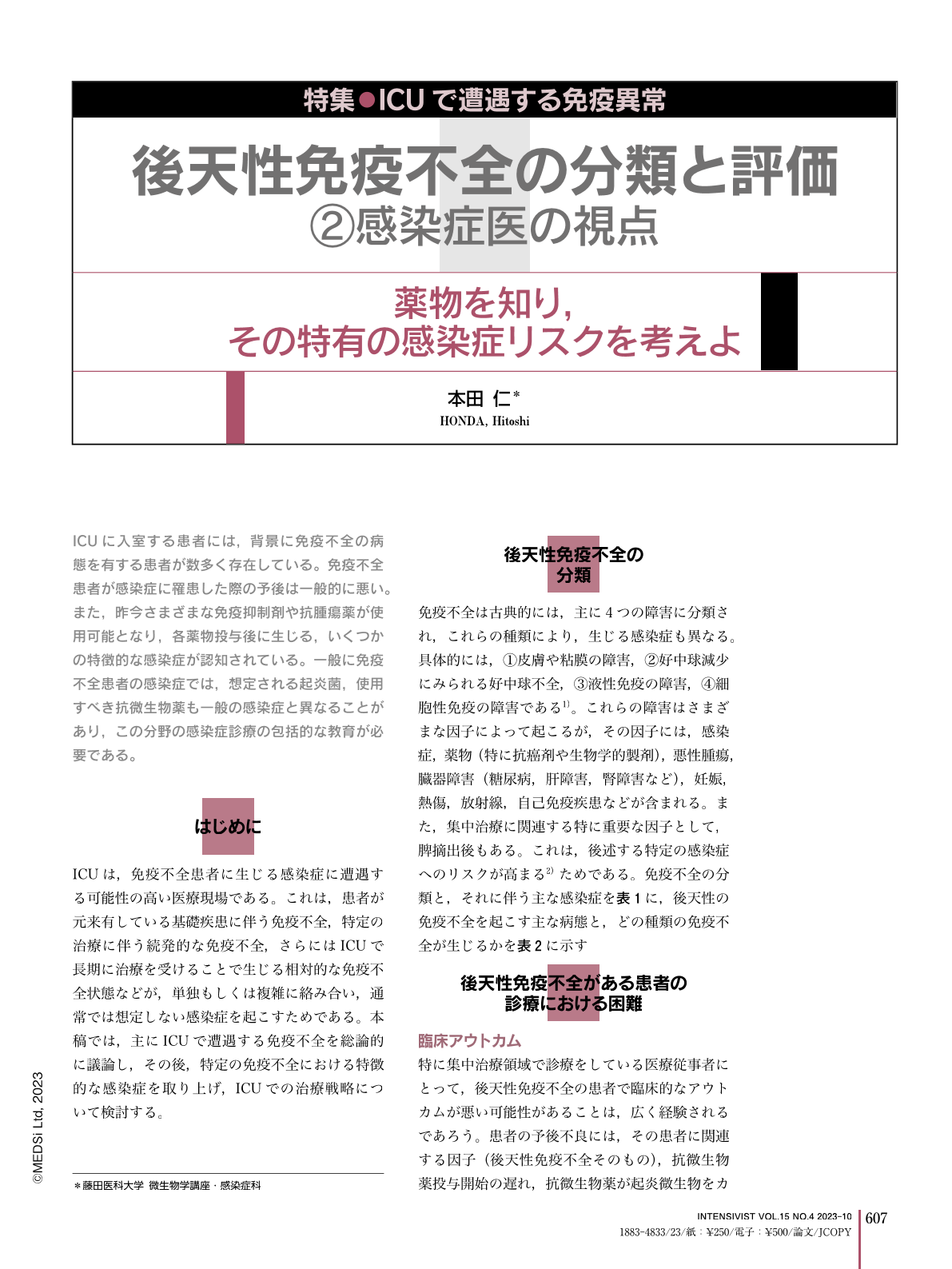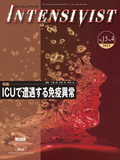Japanese
English
- 有料閲覧
- Abstract 文献概要
- 1ページ目 Look Inside
- 参考文献 Reference
ICUに入室する患者には,背景に免疫不全の病態を有する患者が数多く存在している。免疫不全患者が感染症に罹患した際の予後は一般的に悪い。また,昨今さまざまな免疫抑制剤や抗腫瘍薬が使用可能となり,各薬物投与後に生じる,いくつかの特徴的な感染症が認知されている。一般に免疫不全患者の感染症では,想定される起炎菌,使用すべき抗微生物薬も一般の感染症と異なることがあり,この分野の感染症診療の包括的な教育が必要である。
Critically ill patients in intensive care units (ICUs) may have a number of immunodeficiencies due to their underlying illnesses or immunosuppressive therapies. Immunosuppression frequently occurs in association with diabetes mellitus, bone marrow transplantation, underlying malignancies, and the use of immunosuppressive agents.
Unfortunately, various types of infectious diseases can occur among these populations, which can cause substantial morbidity and mortality. Recently, the emergence of COVID-19 may be associated with invasive fungal infections. Moreover, the availability of new cancer drugs and immunosuppressive agents predisposes patients to opportunistic infections, and physicians should be aware of treatment strategies for less common infectious diseases. This article reviews the common infectious etiologies among patients with immunosuppressive statuses classified into the following categories:1) impaired mucosal barrier, 2) neutropenia, 3) impaired humoral immunity, and 4) cell-mediated immunity. We also discuss the choice of antimicrobial agents for each opportunistic infection and subsequent amanagement in the ICU.

Copyright © 2023, MEDICAL SCIENCES INTERNATIONAL, LTD. All rights reserved.


